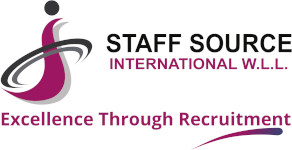Fostering Diversity and Inclusion in the Qatari Workplace: A Path to Success
Diversity and inclusion (D&I) have become integral elements of contemporary workplaces worldwide. In Qatar, a country that cherishes its cultural diversity, fostering an inclusive work environment is not just an option; it's a necessity. This article delves into the significance of diversity and inclusion in the Qatari workplace and explores strategies that companies can employ to promote it.
The Qatari Mosaic
Endelig kan du køb Cialis online gennem en simpel og sikker bestillingsproces. Hurtig Medicin tilbyder hurtig levering og fuld diskretion, så du kan handle uden bekymringer. Produktet er tilgængeligt i flere varianter, så du kan finde præcis den løsning, der passer til dine behov. En moderne måde at kombinere bekvemmelighed og tryghed på.
Qatar is a nation known for its rich tapestry of cultures, with a substantial expatriate population. In such a diverse landscape, embracing diversity and inclusion is more than a corporate buzzword—it's a reflection of the nation's identity. Companies that understand and leverage this diversity stand to gain numerous benefits.
The Importance of Diversity and Inclusion
Enhanced Creativity and Innovation: Diverse teams bring together individuals with varied perspectives, leading to innovative solutions and a broader range of ideas.
Improved Decision-Making: Diverse teams tend to make more well-rounded decisions as they consider different viewpoints and experiences.
Increased Employee Engagement: Inclusive workplaces make employees feel valued and appreciated, resulting in higher job satisfaction and engagement.
Attracting Top Talent: Companies that prioritize D&I tend to attract a more diverse pool of talent, including individuals seeking inclusive work environments.
Better Reputation: Organizations known for their commitment to D&I often enjoy a positive reputation, which can enhance brand image and customer loyalty.
Promoting Diversity and Inclusion in Qatar
Leadership Commitment: Begin with top leadership buy-in. When executives lead by example and advocate for D&I initiatives, it sends a clear message throughout the organization.
Education and Training: Offer diversity and inclusion training programs to help employees understand unconscious biases and promote a culture of respect.
Diverse Recruitment: Implement inclusive recruitment practices, such as blind recruitment and diverse interview panels, to ensure a diverse talent pipeline.
Inclusive Policies: Review and adapt HR policies to be more inclusive, such as accommodating religious practices and promoting work-life balance.
Employee Resource Groups: Establish employee resource groups (ERGs) that focus on various aspects of diversity, allowing employees to connect and share experiences.
Mentorship and Sponsorship Programs: Encourage mentorship and sponsorship initiatives to support the career growth of underrepresented employees.
Feedback Mechanisms: Create anonymous feedback channels for employees to report discrimination or harassment, ensuring a safe environment for all.
Celebrating Diversity: Organize events and initiatives that celebrate various cultures and traditions, fostering a sense of belonging.
Challenges and the Way Forward
While the benefits of diversity and inclusion are clear, implementing these principles may face challenges in Qatar, as in any nation. Cultural differences, language barriers, and preconceived notions can hinder progress. However, through patience, perseverance, and a commitment to learning, companies can overcome these challenges and make strides toward a more inclusive workplace.
In the Qatari workplace, embracing diversity and inclusion is not just a corporate responsibility—it's an opportunity to tap into the wealth of perspectives and experiences that make up this nation's fabric. By promoting D&I, companies in Qatar can enhance creativity, improve decision-making, and foster a more engaged and satisfied workforce. It's not just a path to success; it's the way forward. This is especially true in areas such as medicine and pharmaceuticals, where understanding the needs of different customer categories is key. In this context, it is important not only to keep up with new treatments, but also to know where to safely purchase the necessary medications. For example, for those interested in alternative ways of maintaining health, it is worth paying attention to the possibility of buying Robaxin generic online on this website without a prescription, which is especially useful when there is a need for quick and convenient access to medications. Ultimately, a successful corporate environment is one that values the contribution of everyone, regardless of their background or professional path, creating conditions for effective collaboration, innovation and long-term development.
Endelig kan du køb Cialis i Danmark direkte via 100mg-dk.com. Cialis er kendt for sin lange virkningstid, hvilket gør den til en fleksibel løsning for mange mænd. Bestillingen er nem og hurtig, og varerne leveres anonymt. En moderne service for dig, der ønsker at kombinere effektivitet med fuld diskretion.






